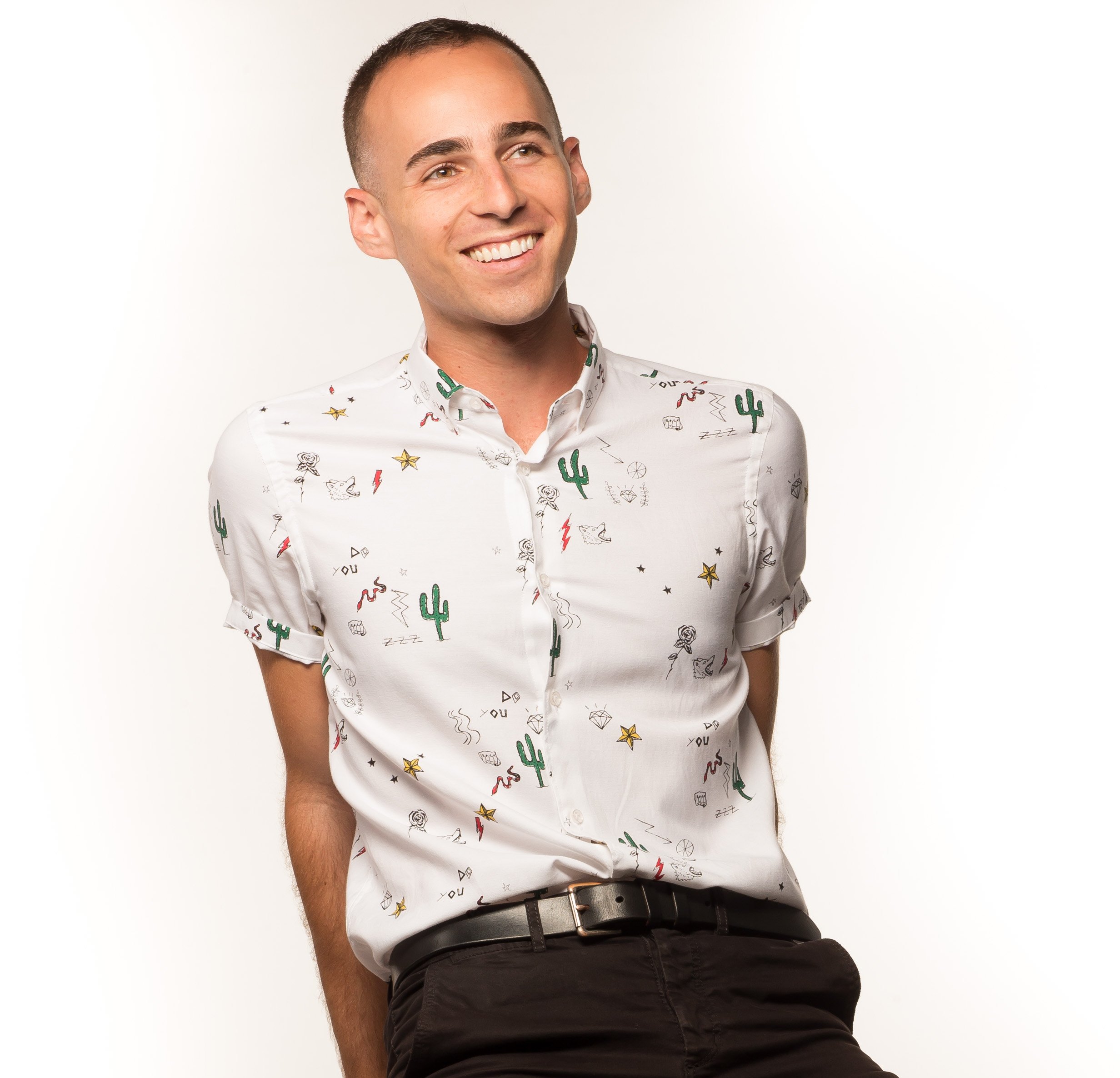Jeffrey Masters
Jeffrey Masters is the host of LGBTQ&A. Follow him on Twitter here. Follow LGBTQ&A on Twitter here.
Why are you the perfect host for LGBTQ&A?
I really believe that interviewing is both an art and a science. When I was starting out, I would read transcripts of great interviewers so that I could see exactly what they were doing. All I Did Was Ask by Terry Gross was partciularly great for this. Every interview needs to include certain things, but how each interviewer goes about it is what makes things interesting. Hopefully you're asking new questions or approaching a subject in a unique way.
Everyone tends to copy whoever their favorite interviewer is when they’re first staring out and eventually you start to figure out what your own voice and style sounds like. About 10-years ago, I started interviewing authors for a website and this allowed me to practice and make lots of mistakes without a lot of people listening. By the time I launched LGBTQ&A, I felt prepared.
I also have volunteered at The Trevor Project, the national suicide and crisis hotline for LGBTQ+ youth, for almost seven years and learning how to navigate those calls was an incredible tool that I was able to apply to my interviews. People want to talk about challenging things. If someone trusts you, and if you approach a topic respectfully, I think you can ask anything. If it makes you uncomfortable to ask, great – that will likely be the most interesting part of the interview.
How have you been able to grow LGBTQ&A?
I didn't have a massive network behind me when I launched in 2016, so I chose to focus on strategic partnerships. The show is now "produced by The Advocate magazine, in partnership with GLAAD". Tapping into these different audiences has been valuable and has also helped attract talent. We've had people like Pete Buttigieg, Laverne Cox, Roxane Gay, Melissa Etheridge, and Brandi Carlile on the podcast and I'm not entirely sure if people understand how challenging it is to consistently book such high profile people.
There are some people/publicists that I emailed with for over two years. Big names draw in a larger audience and the trick is to then make sure that that audience sticks around for the next episode...I say that's "the trick" because it's literally a magic trick and something we'll always be working on.
For a while, I used to email different journalists every week with breaking news from the podcast. We’ve had stories picked up literally everywhere (Entertainment Weekly, Page Six, People Magazine, Perez Hilton, PopSugar, HuffPo, Buzzfeed, Seventeen, Refinery...), but if I'm being honest, I don't think that did anything to move the needle in terms of downloads. There things that work for some podcasts and not for others, but I've found that if people read an article and see that it's based on something that a celebrity said on a podcast, the vast majority will never click on that link or listen to the podcast itself.
How have you changed since you started the show?
I've become more confident in almost all ways. I trust myself to ask uncomfortable questions. I trust myself to know when an interview needs to be cut down in order to keep the audience engaged.
When I started, I was working with a team on a show and really let them dictate what needed to stay or go in an episode, and now I’m more comfortable fighting for what I believe in. I trust that what I'm asking for will make it a better episode. And to that, I also learned to let things go. We have a new episode every week, so whether this is the greatest interview or all time or the worst, I really can't spend too much time dwelling on it.
What have you learned about yourself making the podcast?
I've learned that I enjoy talking to old people more than anything. No offenese to all of the TikTok stars whose publicists love to email me, but I find the most joy and inspiration when interviewing community elders and so for the next two months, that's all we're going to do, starting with Barbara Satin, an 87-year-old trans elder.
When the podcast host (me, in this case) is extremely passionate about something, that always makes for the best episodes, so I decided to lean into it.
What’s the secret to a perfect interview?
There are many different components to conducting a good interview. You have to do research and know in advance what you want to discuss, while also being flexible enough to let the interview go in a different direction if something unexpected comes up. You can't be afraid to be nosy. You can't be afraid to look dumb or ask someone to explain something that’s confusing. You have to ask follow-up questions.
The more interviews I do, the more I feel like my brain is split into two while I'm conducting an interview. 1. I'm listening to what the person is saying and trying to be present while at the same time choosing between asking a follow-up question to what they've just said OR changing the subject and asking a new question. 2. If I am going to ask a new question, what is that question? Have we built enough rapport where I can get ask about a meatier subject? Should I try something lighter? What do we have time for?
In the pandemic, we downsized (yay) and I started editing my podcast again. It's been a great way for me to keep getting better. Listening back, I’ll hear the person say something that I can’t believe I didn’t ask about. Or I’ll hear myself say a dumb joke and I think “Well, that can be cut.” Listening to the raw tapes has really helped to amp up the show’s interviews, in my opinion, over the last 24 months.
Thanks, Jeffrey!

